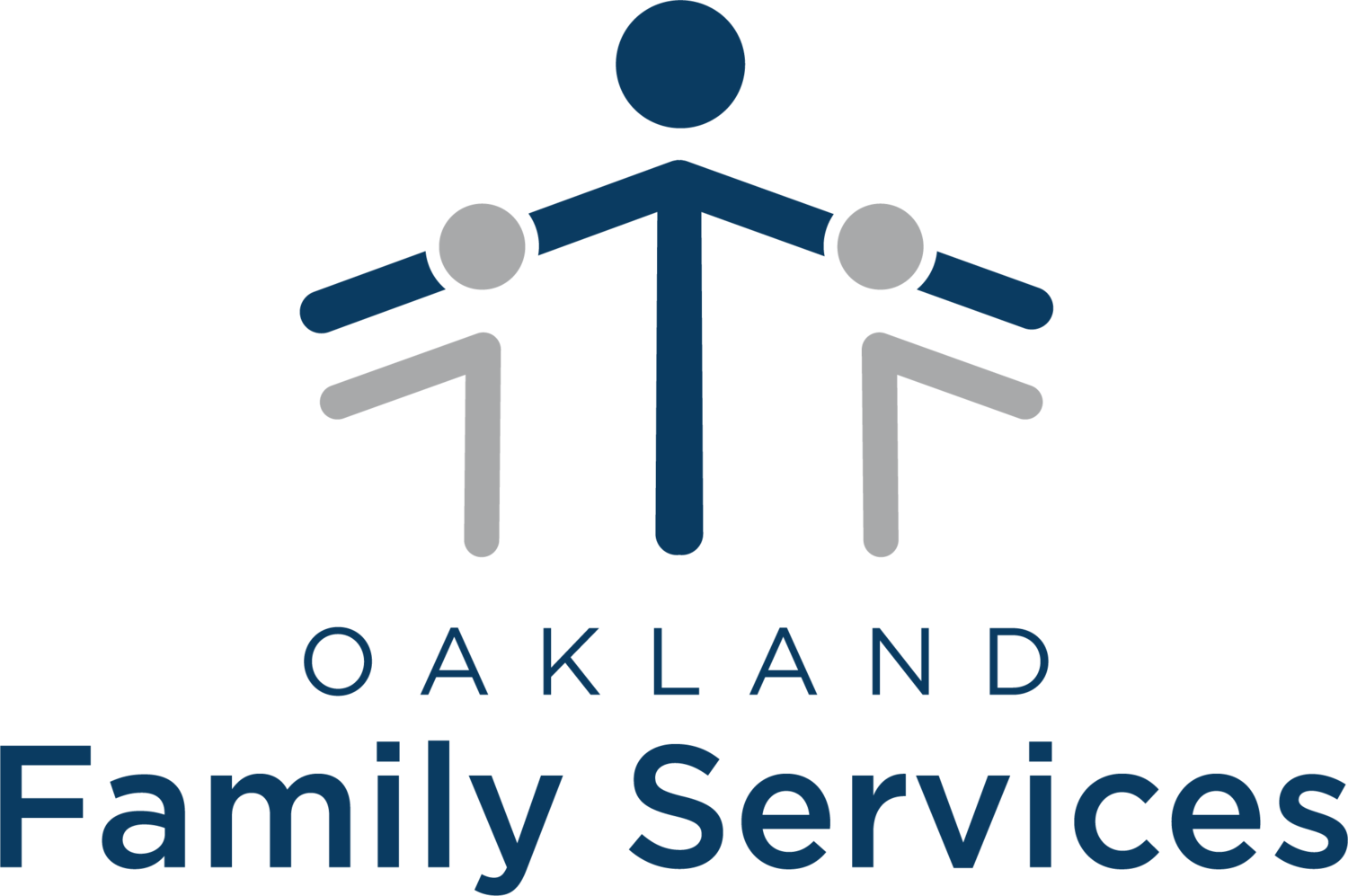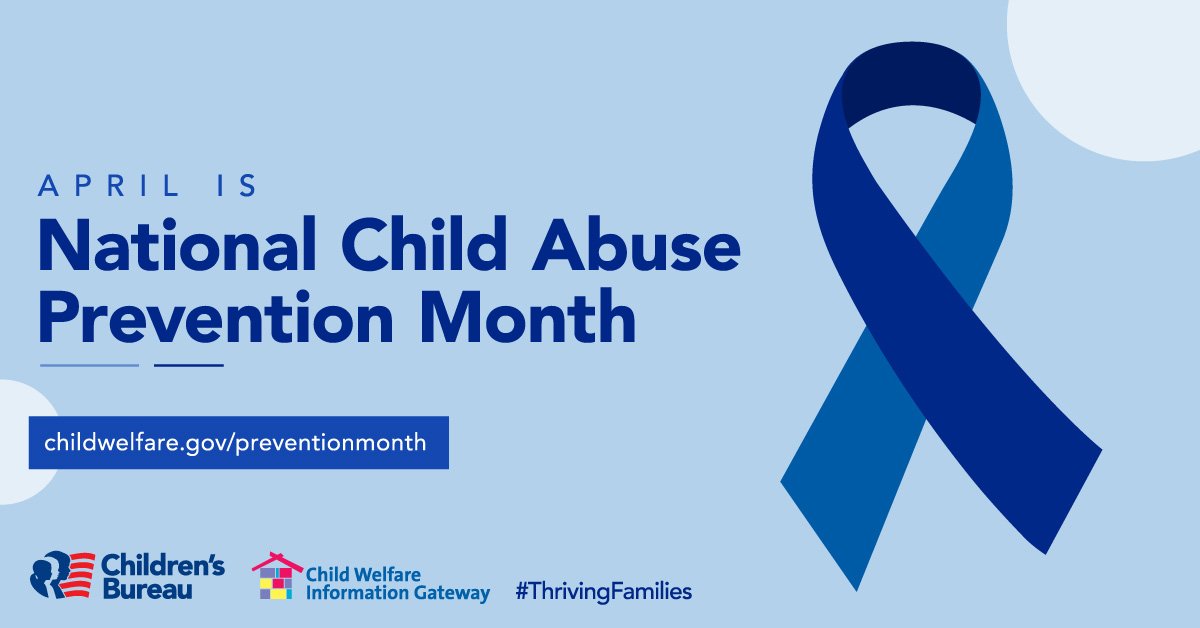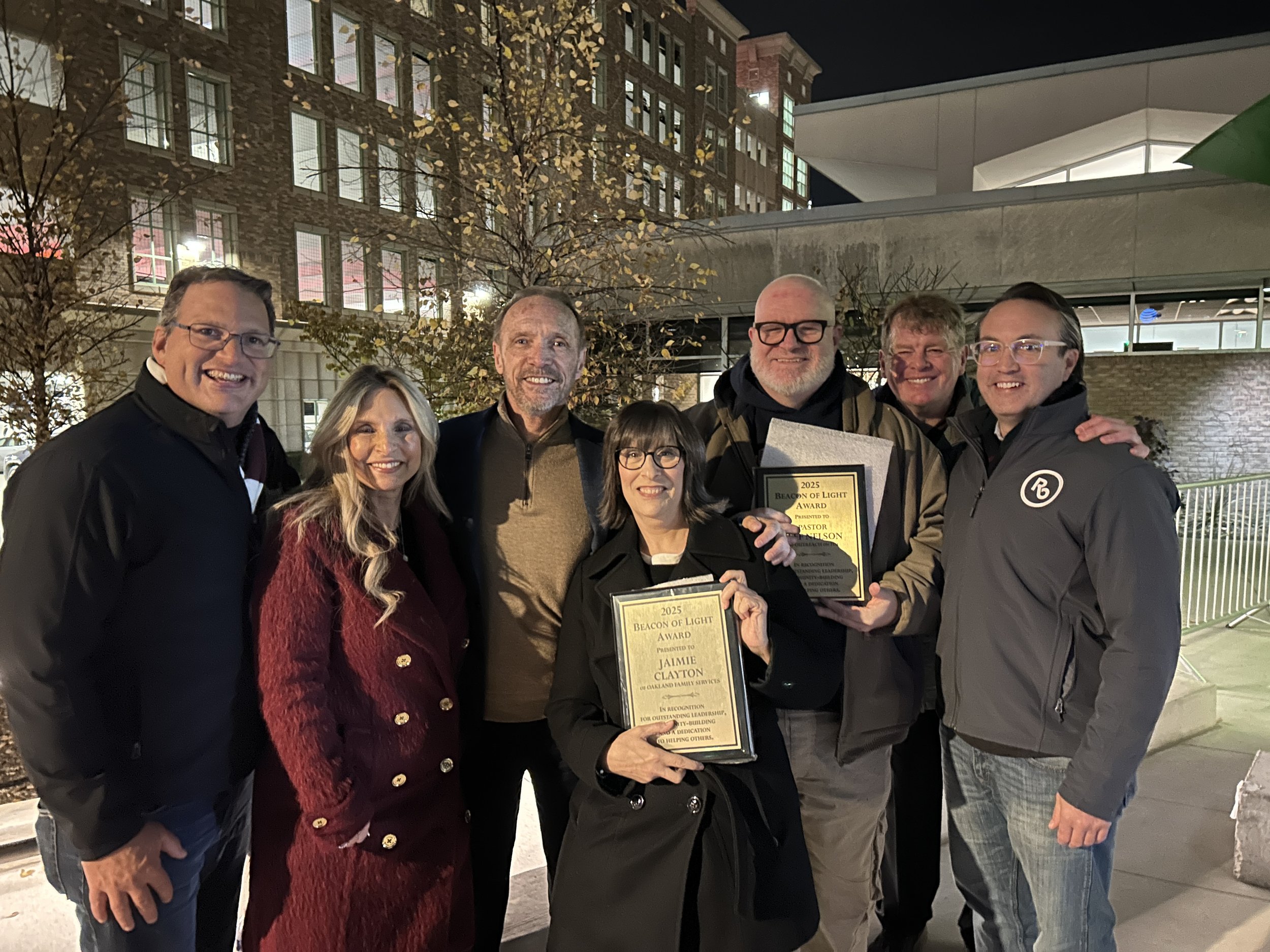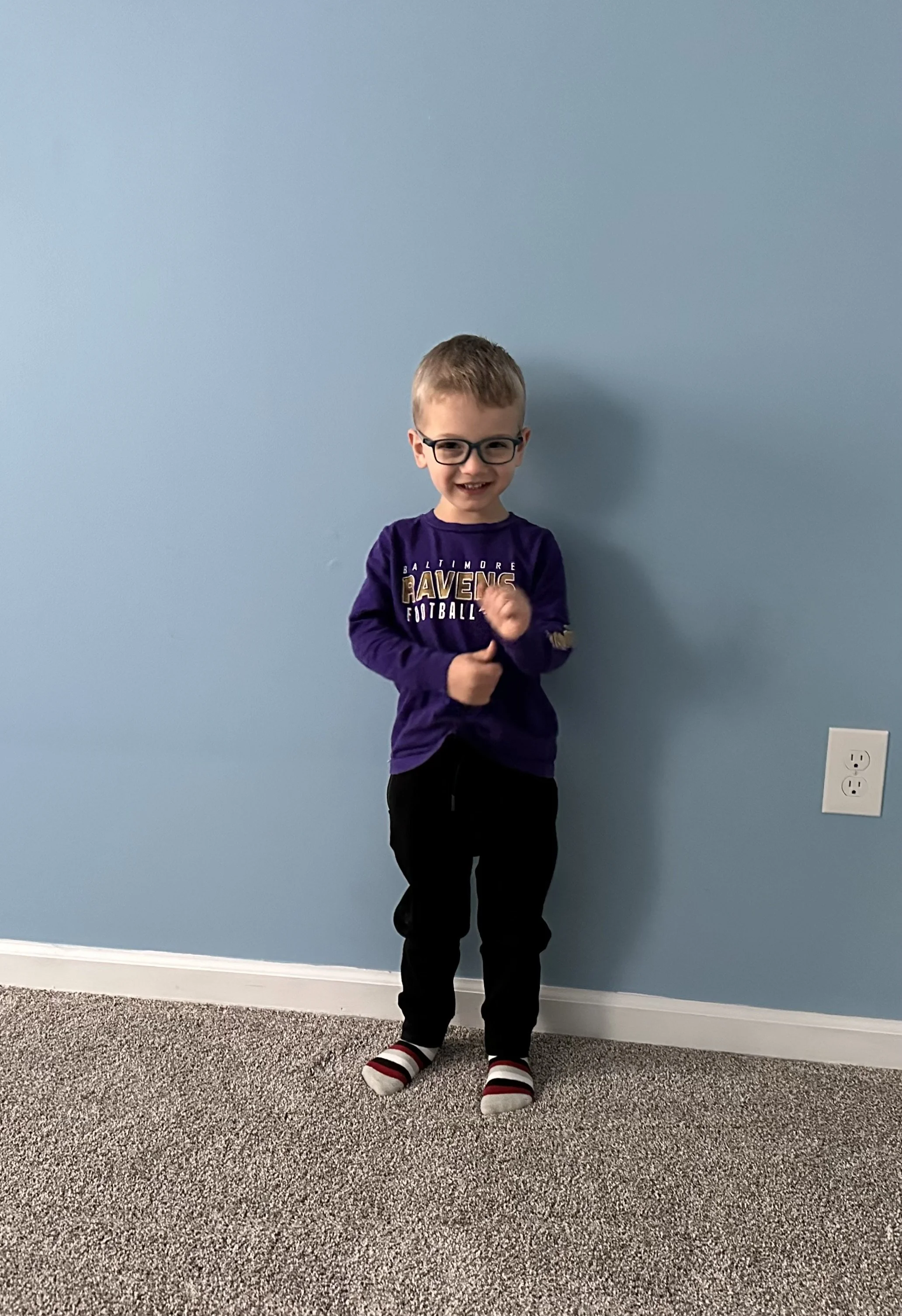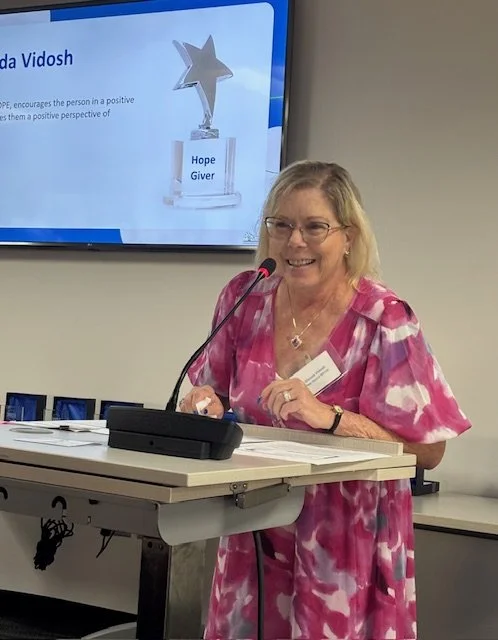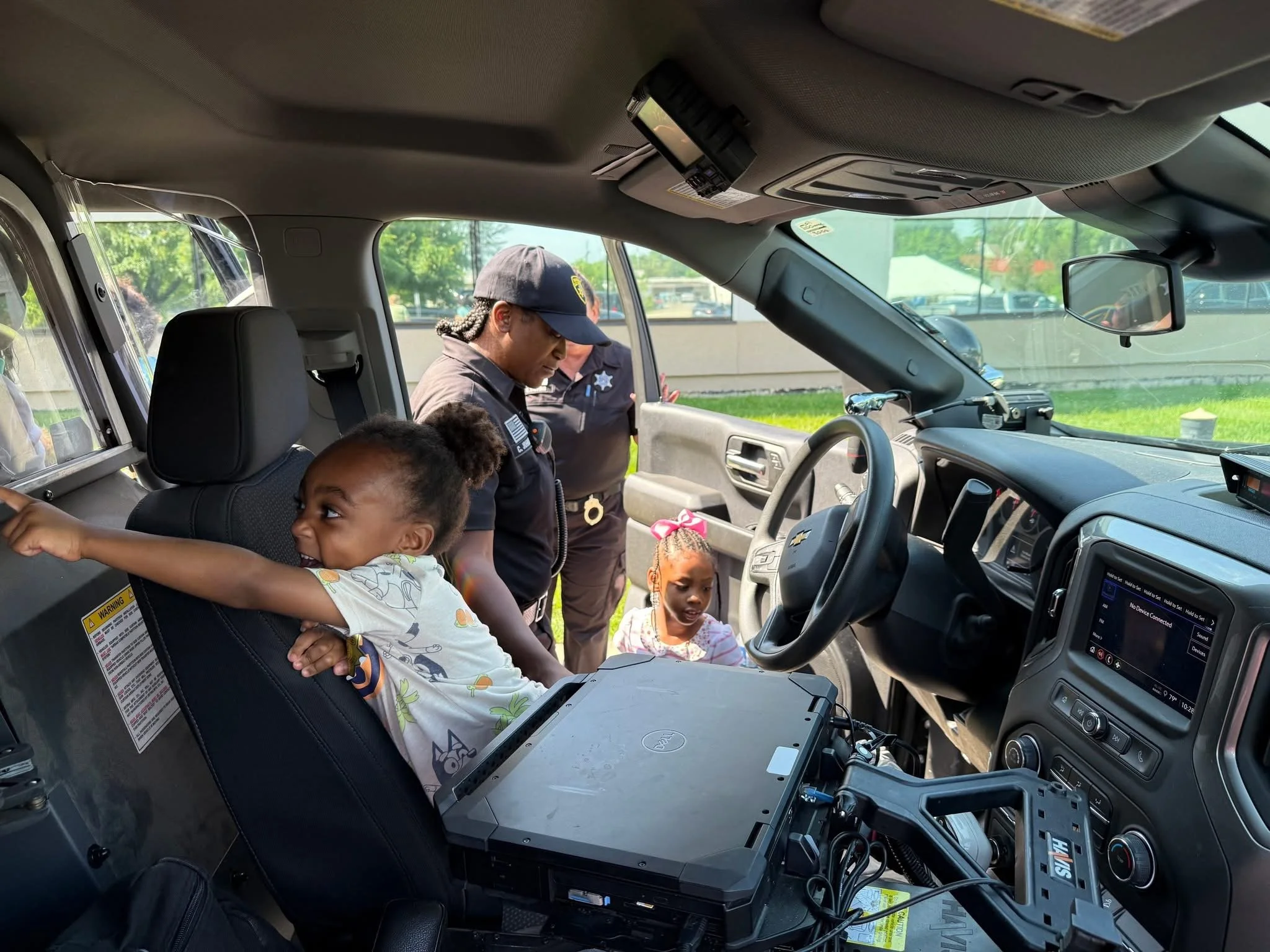April is National Child Abuse Prevention Month
A reported 1,750 children died from abuse and neglect in the U.S. during federal fiscal year 2020, according to the latest national data. Child protective services investigated or responded to more than 3 million allegations of child maltreatment across the country, and a total of 618,000 children were found to be victims of child maltreatment.
Every April, Oakland Family Services recognizes National Child Abuse Prevention Month, an initiative rooted in communities working together to serve children and their families in meaningful, impactful ways that help families build brighter futures, even through adversity.
Why does child abuse happen?
“I don’t think any parent wakes up one day and says, ‘Today’s a great day to abuse my kid,’” said Oakland Family Services President and CEO Jaimie Clayton in an interview with Civic Center TV last year. “It’s what happens in between. It’s poverty, it’s intergenerational foster care issues, it’s a history of abuse, it’s a lack of parent training and support. There’s so many factors that go into it, and if we’re not finding those families and helping them, we’re not helping the kid, and we’re not helping the parents.”
While no family is perfect and each has its own unique challenges, there are certain issues such as a family’s neighborhood, income level or other societal factors that can make parenting more difficult and increase household stress. Family troubles like mental health issues, substance misuse, children’s developmental delays, relationship troubles, incidents of domestic violence and other types of trauma can all stand in the way of optimal parenting. Child abuse and neglect can also be intergenerational — when a child grows up without a positive family dynamic, they may be more likely to perpetuate the cycle when they grow up to have their own children.
“I don’t think any parent wakes up one day and says, ‘Today’s a great day to abuse my kid.’ It’s what happens in between. It’s poverty, it’s intergenerational foster care issues, it’s a history of abuse, it’s a lack of parent training and support. There’s so many factors that go into it.”
One of the greatest ways to prevent child abuse and neglect is to help parents and caregivers become more resilient by building up protective factors. Protective factors are conditions or attributes that mitigate or eliminate risk and can increase the health and wellbeing of children and families. They provide parents with the tools they need to parent effectively, even under stress.
Major protective factors include:
knowledge of parenting,
knowledge of child development,
parental resilience,
social connections,
and concrete supports.
how we help
Oakland Family Services offers concrete supports that help families build up protective factors.
In Prevention
Early On provides free, in-home developmental assessments and support for Oakland County children from birth to age 3. These assessments look at skills in the following areas: gross motor, fine motor, cognition, speech, self care (eating and sleeping), emotions, interactions with others and coping. Parents are encouraged to have their children evaluated, as kids with mild to moderate developmental delays that go undetected are more likely to struggle in school and in life.
Parents as Teachers is a free, in-home service that helps increase knowledge in parenting skills and child development. The program supports children’s speech, social and emotional development from birth to age 6. Families work with a parent educator who visits weekly or biweekly, conducts developmental screenings and can help connect families to other resources like food and housing support. Parents as Teacher also offers free, professionally led Ready, Let’s Grow! playgroups to connect families in our community.
Oakland Family Services’ foster care and adoption program provides safe, loving homes for children in need through foster home licensing, foster care placements, foster and adoptive caregiver trainings, and other supports. Reunification of biological families is the primary goal of foster care, and foster parents give children caring, stable homes until problem situations in their own homes are resolved. In cases where children are legally available for adoption, we help bring families together permanently.
In Education
Our Children’s Learning Centers in Pontiac and Walled Lake offer free 4-year-old preschool for children who meet certain income requirements or other qualifying risk factors through the Great Start Readiness Program. Our CLCs focus on supporting each child’s social, emotional, physical and intellectual development to prepare them for success in kindergarten and beyond. We also offer affordable tuition-based child care, 3-year-old preschool, 4-year-old preschool and summer camp programs.
Our Early Learning Communities provide resources for parents and child care providers, including free trainings, playgroups, workshops and resource Lending Libraries throughout the community. As part of the Great Start to Quality Wayne-Oakland-Macomb Resource Center, the Early Learning Communities provide trainings that help Michigan child care providers level up their quality of care and earn Child Development Associate hours or State Continuing Education Clock Hours.
In Treatment
Day One provides affordable counseling to people age 4 and up for mental health concerns such as depression, anxiety, post-traumatic stress disorder and bipolar disorder. Day One also offers treatment for substance use disorders, with specialized programs tailored to meet the unique needs of adolescents, as well as mothers and pregnant women working to achieve and sustain recovery. Day One accepts most private health insurances, as well as Medicare, Medicaid, Medicaid HMOs and the Healthy MI plan.
Specialized Services for Youth is a program for children and youth ages 6-21 suffering from severe emotional, behavioral or psychological stress and their families. It offers individual, family and group counseling; case management; in-home counseling; peer and parent support; respite and psychiatric services for youth with Medicaid insurance who are determined eligible by the Oakland Community Health Network.
All of these programs help reduce child abuse and neglect by offering lifelines to children and families, and by building up the protective factors that can help families thrive. A donation to Oakland Family Services helps prevent child abuse and neglect in southeast Michigan. Please consider making a donation at oaklandfamilyservices.org/buildbrighterfutures to support this important work.
